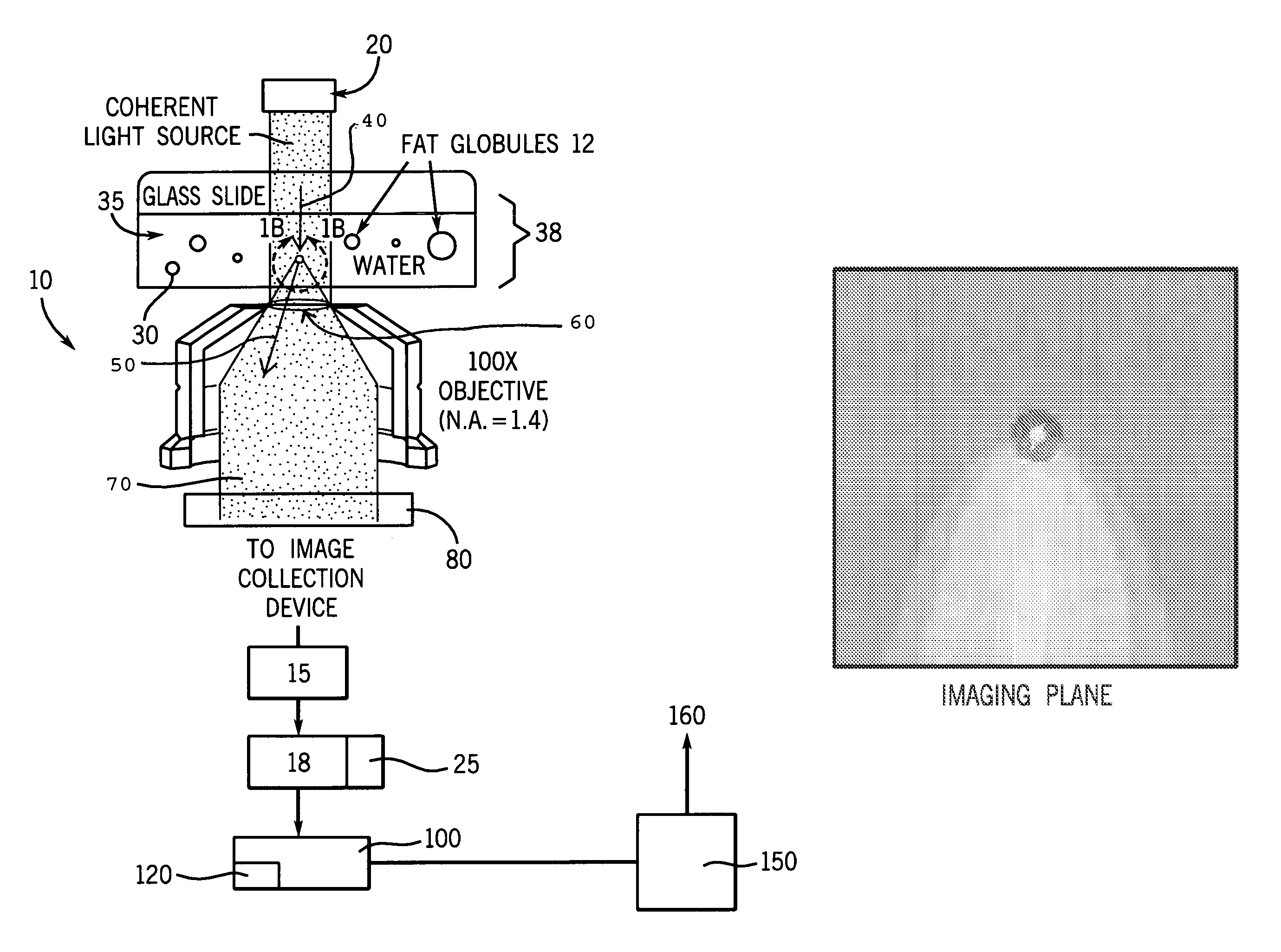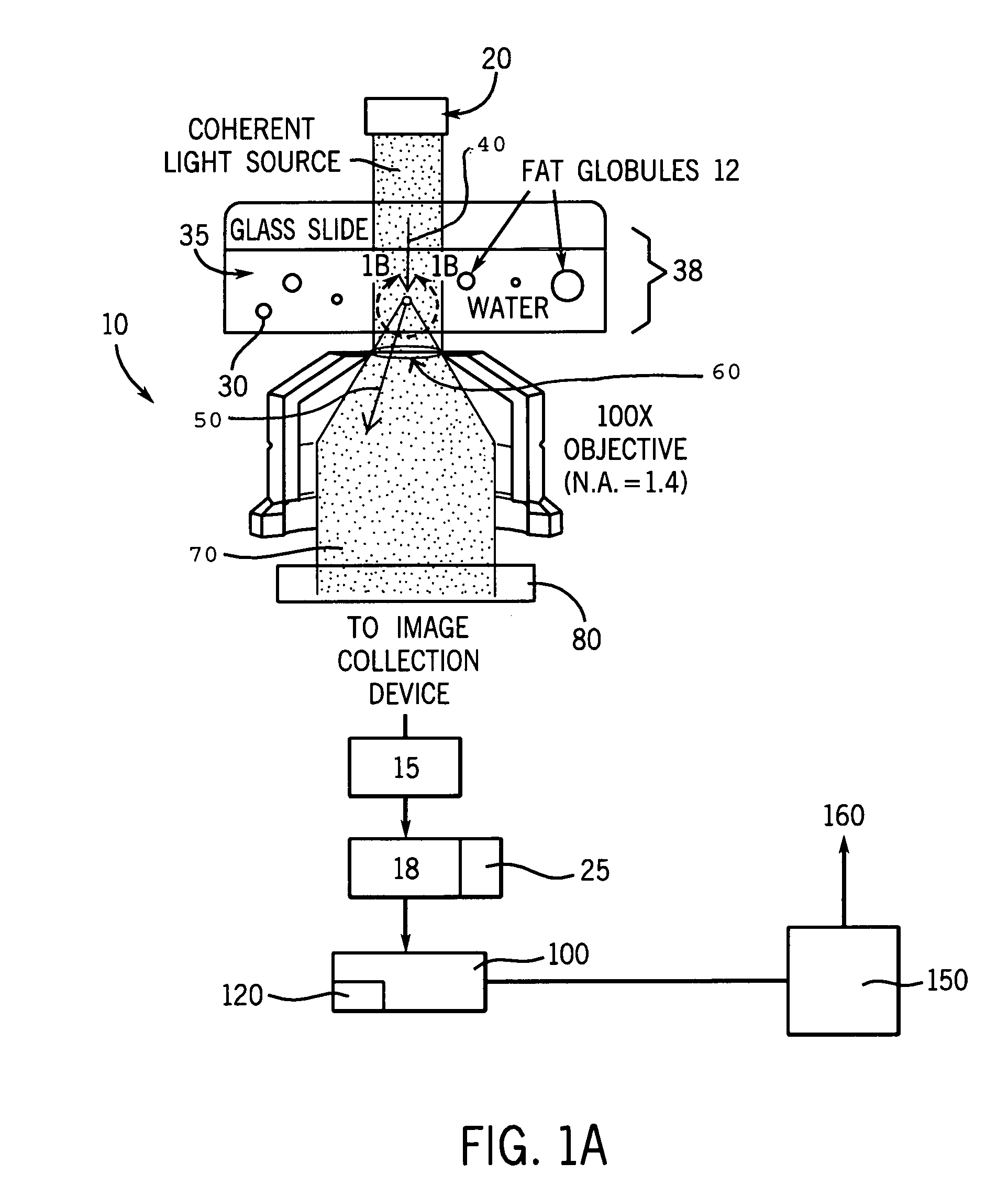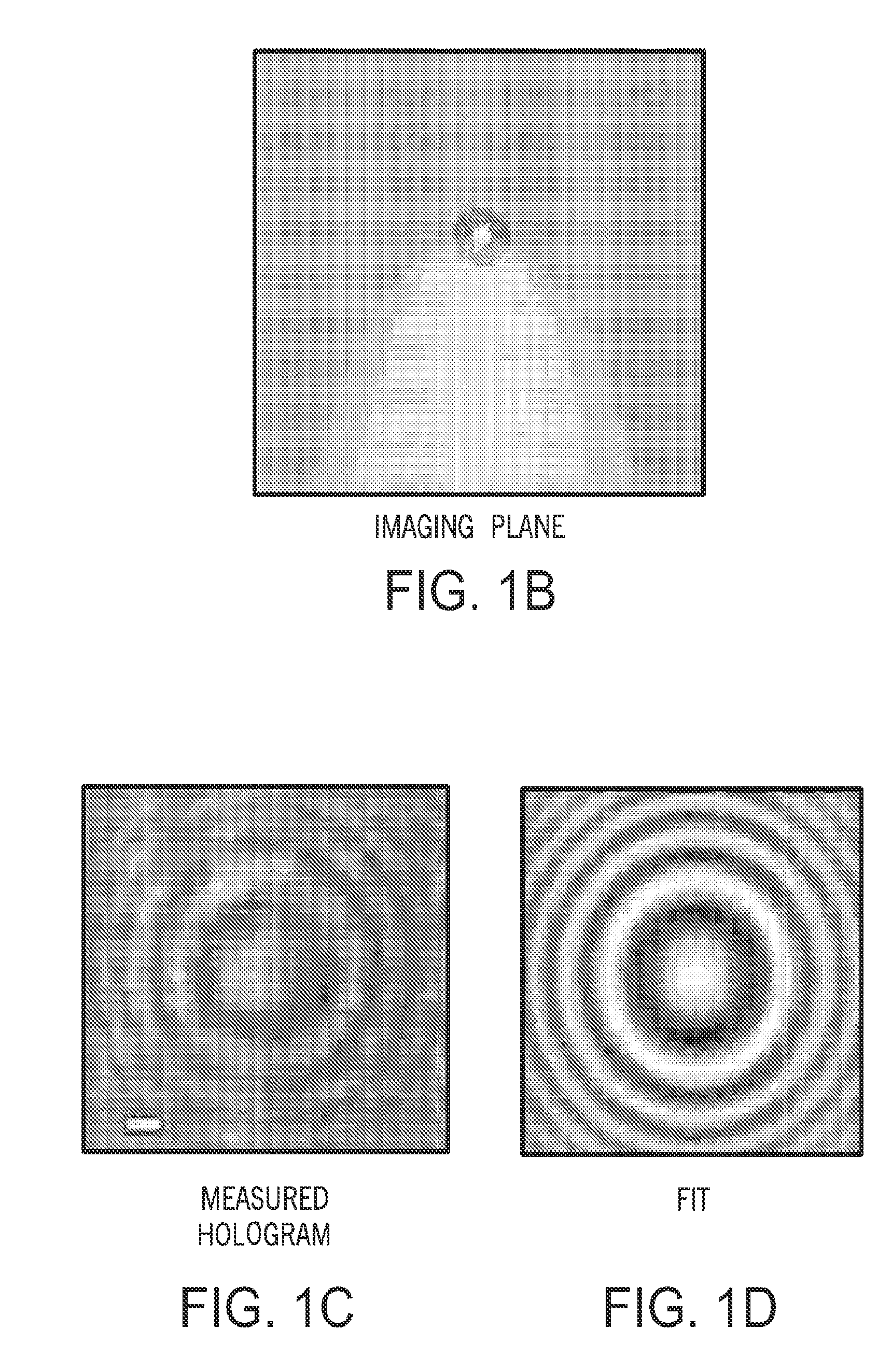Tracking and characterizing particles with holographic video microscopy
a technology of holographic video and particle size, applied in the field of tracking and characterizing particles with holographic video microscopy, can solve the problems of limited range of axial displacements over which conventional particle-imaging methods can be applied, and generally have substantially poor spatial resolution than the in-plane positions
- Summary
- Abstract
- Description
- Claims
- Application Information
AI Technical Summary
Benefits of technology
Problems solved by technology
Method used
Image
Examples
Embodiment Construction
[0022]The subject holographic microscope 10, depicted schematically in FIG. 1A, is based on a commercial inverted light microscope (Zeiss Axiovert TV 100 S). A conventional incandescent illuminator is replaced with a collimated 10 mW HeNe laser 20 (for example, Uniphase) operating a vacuum wavelength of λ=632.8 nm. A specimen, such as an individual particle 12 or different phase 30 within a medium 35 disposed on a specimen stage or holder 38 at position rp scatters a small portion of the plane-wave illumination light 40. Scattered light 50 then propagates to the focal plane 60 of the microscope 10, where the light 50 interferes with the unscattered portion of the laser beam light 40. The resulting interference pattern is magnified by the microscope's objective lens 70 (such as, an S Plan Apo, 100x, NA 1.4, oil immersion) and projected by a video eyepiece 80 (0.63x) onto a CCD camera 15 (such as, NEC TI-324AII) before being recorded as uncompressed digital video with a digital video ...
PUM
| Property | Measurement | Unit |
|---|---|---|
| diameter | aaaaa | aaaaa |
| viscosity | aaaaa | aaaaa |
| molecular-weight | aaaaa | aaaaa |
Abstract
Description
Claims
Application Information
 Login to View More
Login to View More - R&D
- Intellectual Property
- Life Sciences
- Materials
- Tech Scout
- Unparalleled Data Quality
- Higher Quality Content
- 60% Fewer Hallucinations
Browse by: Latest US Patents, China's latest patents, Technical Efficacy Thesaurus, Application Domain, Technology Topic, Popular Technical Reports.
© 2025 PatSnap. All rights reserved.Legal|Privacy policy|Modern Slavery Act Transparency Statement|Sitemap|About US| Contact US: help@patsnap.com



